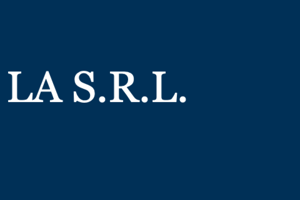Podcast
Questions and Answers
What is the minimum percentage of quota capital required to form a quorum in a quotaholders' meeting?
What is the minimum percentage of quota capital required to form a quorum in a quotaholders' meeting?
Which of the following decisions require a higher majority than an absolute majority of the capital present?
Which of the following decisions require a higher majority than an absolute majority of the capital present?
In the event of an invalid quotaholder decision, who can appeal the decision?
In the event of an invalid quotaholder decision, who can appeal the decision?
Which of the following is NOT a valid reason for the annullability of a quotaholder's decision?
Which of the following is NOT a valid reason for the annullability of a quotaholder's decision?
Signup and view all the answers
What is the primary responsibility of the directors as stated in Article 2475, paragraph 1 of the Civil Code?
What is the primary responsibility of the directors as stated in Article 2475, paragraph 1 of the Civil Code?
Signup and view all the answers
Which of the following scenarios correctly describes the process of transferring a quota in an SRL?
Which of the following scenarios correctly describes the process of transferring a quota in an SRL?
Signup and view all the answers
In the event a quotaholder exercises the right of withdrawal, how is the value of the quota determined?
In the event a quotaholder exercises the right of withdrawal, how is the value of the quota determined?
Signup and view all the answers
Which of the following is NOT a possible outcome for a quotaholder who has exercised the right of withdrawal?
Which of the following is NOT a possible outcome for a quotaholder who has exercised the right of withdrawal?
Signup and view all the answers
Under what circumstances can a quotaholder be excluded from an SRL?
Under what circumstances can a quotaholder be excluded from an SRL?
Signup and view all the answers
In the event of a quotaholder being excluded from an SRL, what happens to the quota?
In the event of a quotaholder being excluded from an SRL, what happens to the quota?
Signup and view all the answers
In the event of a material quota capital increase, what right do quotaholders have if they disagree with the decision?
In the event of a material quota capital increase, what right do quotaholders have if they disagree with the decision?
Signup and view all the answers
According to the content, which entity or entities may bring a liability action against the company's directors based on their actions?
According to the content, which entity or entities may bring a liability action against the company's directors based on their actions?
Signup and view all the answers
In the context of company management, what is the key distinction between directors exercising powers 'severally' and 'jointly'?
In the context of company management, what is the key distinction between directors exercising powers 'severally' and 'jointly'?
Signup and view all the answers
What is the main difference between a material quota capital increase and a free quota capital increase?
What is the main difference between a material quota capital increase and a free quota capital increase?
Signup and view all the answers
Which of the following statements regarding the directors' liability is TRUE?
Which of the following statements regarding the directors' liability is TRUE?
Signup and view all the answers
Flashcards
Equity stakes
Equity stakes
Units held in the capital of an SRL represented by quotas.
Quotas in SRL
Quotas in SRL
Capital shares that can vary in rights and values among quotaholders.
Transfer of quotas
Transfer of quotas
Quotas can be transferred freely unless restricted by bylaws; requires a notary deed.
Right of withdrawal
Right of withdrawal
Signup and view all the flashcards
Exclusion of quotaholders
Exclusion of quotaholders
Signup and view all the flashcards
Quotaholders' Decisions
Quotaholders' Decisions
Signup and view all the flashcards
Meeting Procedure
Meeting Procedure
Signup and view all the flashcards
Quorum Requirements
Quorum Requirements
Signup and view all the flashcards
Annullability vs Nullity
Annullability vs Nullity
Signup and view all the flashcards
Directors' Responsibilities
Directors' Responsibilities
Signup and view all the flashcards
Appointment of Directors
Appointment of Directors
Signup and view all the flashcards
Duration and Termination
Duration and Termination
Signup and view all the flashcards
Management Systems
Management Systems
Signup and view all the flashcards
Directors' Liability
Directors' Liability
Signup and view all the flashcards
Quota Capital Increase
Quota Capital Increase
Signup and view all the flashcards
Study Notes
Companies Limited by Quotas (SRL)
- Liability: Limited to company assets (Article 2462, par. 1).
- Shares: Quotaholders' equity stakes cannot be represented by shares or offered to the public as financial products (Article 2468, par. 1).
- Benefits: Lower capital requirements for incorporation, lower operating and incorporation costs, and greater organizational flexibility.
Incorporation
- Public Subscription: Not allowed.
- Minimum Capital: 10,000 Euros.
- Name: Company name must include "s.r.l." and can be freely chosen.
- Time Limit: Can be incorporated without a time limit.
- Instrument of Incorporation: Must be a public deed (Article 2463, par. 1). Can be an agreement or a unilateral act. A single-member company is possible but with specific rules regarding contributions and publication.
- Unlimited liability for the sole quotaholder if obligations aren't met.
- Content of Instrument: Must include company name, country, registered office, company name including SRL, activity and company objects, subscribed and paid-up quota capital (at least 10,000 Euros), and contribution of each quotaholder (Article 2463, par. 2).
Incorporation Requirements
- Full Subscription: Quota capital must be fully subscribed (Article 2329).
- Registration: The notary must file the instrument of incorporation with the company registry (Article 2330).
- Effects of Registration: Registration with the company registry has an incorporation effect (Article 2331).
- Nullity: Any nullity follows the same rules as for a spa (Article 2332).
Contributions
- Types: Cash, assets in kind (receivables), and work/services.
- Cash Default Rule: At least 25% of the cash contribution is required at incorporation (and 100% for single-member companies). Payment can be replaced with insurance or bank guarantees of equal value.
- Assets in Kind: Require a sworn report by a legal auditor about their value.
- Work/Services: Quotaholder is obligated to work for the company. Although not explicitly stated, it's assumed this contribution must be valued.
- Total Value: The total value of contributions cannot be less than the total amount of the company's capital.
- Failure to Make Contributions: If deadlines are missed, there's a formal notice to make contributions. If not paid, the quota might be sold (Article 2466).
Minimum Capital
- Minimum: 10,000 Euros.
- Flexible: The minimum amount can be as low as 1 euro, if the reduced capital complies with law (Article 2463, par. 4 and 5).
- Cash: In cases of reduced capital, contributions must be in cash and fully paid up.
- Legal Reserve: Special rules apply for the legal reserve formation when there is a reduced capital.
Simplified SRL
- Establishment: Agreement or unilateral act for natural persons.
- Capital: At least 1 Euro, but less than 10,000 Euros.
- Cash: Only cash contributions allowed.
- Deed: Must be a public deed but not subject to registration fees.
- Standard Model: Must follow a standard model provided by the Minister of Justice.
Quotaholder Loans
- Subordination: Repayment of quotaholder loans is subordinated to other creditors (Article 2467).
Debt Securities
- Provision: Limited by the instrument of incorporation.
- Responsible Body: The issuing body may be limited when compared to company issues.
- Limited Circulation: Restrictions on circulation might be provided.
- Terms: The company can alter terms and conditions.
Equity Stakes
- Personalistic: Criteria for determining the value can be personal.
- Difference: Quotas can differ significantly.
- Proportional Value: Value proportional to contributions, unless the instrument of incorporation explicitly states otherwise.
Special Rights for Quotaholders
- Instrument of Incorporation: Can grant special rights regarding the company and profit distribution (Article 2468).
Quota Transfer
- Free Transfer: Generally freely transferable, unless prohibited by the instrument of incorporation.
- Registration: Transfer is effective when registered in the Business Register (Article 2470; requires a certified deed by a notary).
- Joint Liability: The seller has joint liability with the buyer (Article 2472).
- Restriction and Withdrawal: The instrument of incorporation can put terms on the circulation of quotas and right of withdrawal.
Quota Restrictions and Prohibition
- Self-dealing: Quotaholders cannot subscribe, purchase, accept as collateral, or provide guarantees for their own quotas (Article 2474).
Public Offerings through Crowdfunding Platforms
- Not Forbidden: Quotas in companies limited by quotas can be used for public offerings through crowdfunding platforms, but are subject to guidelines, similar in concept and limits to those provided by Regulation (EU) 2020/1503 on European crowdfunding service providers for business.
Quota Circulation Schemes (Alternative)
- Alternative Requirements: There are alternative ways to provide processes for circulation of quotas that can deviate from the general principles and procedures provided in the civil code for quota transfer.
Withdrawal
- Grounds: Withdrawal is done on grounds provided in the articles of association or by the law, including when a company that has been indefinitely constituted allows for withdrawal.
- Restrictions: Right of withdrawal may be restricted if this is outlined in the Articles of Association.
Quota Reimbursement
- Valuation: Determined proportionally to the company's assets; considering the market value or by an expert if there's a disagreement.
- Time Limit: Payment must be made within 180 days of the notice being sent.
Quota of Withdrawing Member
- Offer to Others: Offered to other quota holders.
- Reserves/Reduction: If no takers or no reserves, repayment is made using the company's available reserves or through a capital reduction.
- Dissolution: If a capital reduction is not possible, the company is dissolved.
Exclusion
- Just Cause: The instrument of incorporation can outline specific grounds for exclusion (Article 2473-bis).
Quotaholder Decisions
- Reserved Matters: Decisions on matters reserved for quotaholders as designated in the instrument of association, or other items (such as 1/3 of quota capital) specified in the instrument of incorporation.
- Decision Methods: Collegial decisions are compulsory in some instances. Other methods may be outlined in the instrument of incorporation, including written consultation or explicit consent in writing.
- Quota Capital Majority: Some significant decisions may require the consent/majority support from quota holders presenting a majority of the capital.
- Meeting Procedure: The instrument of incorporation specifies the manner for calling the meeting, timing, location at company registered office, and other details.
- Attendance: All quota holders can attend the meetings unless the instrument of incorporation specifies otherwise.
- Voting Rights: The right to vote is proportional to the quota size/stake.
- Quorum: A quorum (minimum number of quota holders) is determined, often requiring at least half of the quota capital.
- Majority Required: The required majority for decisions (or some specific decisions), can also be specified.
Invalidity of Quotaholder Decisions
- Appeal Grounds: Decisions not in accordance with the law, internal rules or certain facts like a shareholder with a conflict of interest may be subject to appeal.
- Deadlines: Appeals must be filed with specific timelines (within 90 days of the decision being recorded).
Nullity of Quotaholder Decisions
- Unlawful or Impossible Objectives: Decisions with unlawful or impossible objectives are invalid; this may include situations where there is a notable absence of critical information.
- Appeal Window: Appeal can be made within 3 years of decision being recorded.
Directors
- Responsibilities: Responsible for overall company operation and for establishing organizational, administrative and accounting structure (Article 2475).
- Appointment: Chosen from quota holders, but the procedure may differ.
- Duration and Termination: Directors typically hold office without a specified time limit, but certain legal grounds like death, withdrawal, removal can end their term.
- Management:
- Alternative Structures: Can be a sole director or a board of directors with delegated bodies (executive committees, managing directors).
- Power Basis: Instrument of Incorporation will specify the type of powers delegated and how powers are exercised (jointly or severally).
- Limits on Powers: Certain powers or matters must be handled by the administrative body.
Directors' Liability
- Company Liability: Jointly liable for damages caused to the company.
- Individual Liability: Liable for negligent or intentional actions damaging the company
- Creditor Liability: Liable to creditors due to actions damaging or impacting the company.
- Management Role: Quotaholders with a formal management role may also have liability (Article 2476).
Monitoring of Management
- Quotaholder Role: Quotaholders can have management oversight role, defined in the instrument of incorporation.
- Auditors: Statutory or external auditors monitor company operations (article 2477).
Changes to Instrument of Incorporation, Quota Capital Increase/Decrease
- Increase Requirements: Any increase of quota capital requires full contribution payments and follows a specific procedure (instrument of incorporation should outline the process); and in some instances, quotaholders can also be granted the right to subscribe to any increase.
- Capital Reduction Cases: Reduction of quota capital to losses might be "optional" if the losses are less than one third of the capital or "mandatory" if losses surpass one-third of the capital, and might also impact any minimum capital requirements stipulated by law or internal company guidelines.
Incorporation, Contributions, and Other Details
- These terms can be interpreted as additional information about the concepts of contributions, incorporation, and details discussed earlier in an attempt to improve clarity or detail certain topics. These sections may not always provide discrete chunks of information but rather contextual details for already mentioned topics.
Studying That Suits You
Use AI to generate personalized quizzes and flashcards to suit your learning preferences.
Related Documents
Description
Test your knowledge on the requirements and regulations regarding quotaholders in an SRL (Società a Responsabilità Limitata). This quiz covers quorum capital, decision-making processes, and the rights of quotaholders as defined in the Civil Code. Discover how well you understand the nuances of SRL governance.




